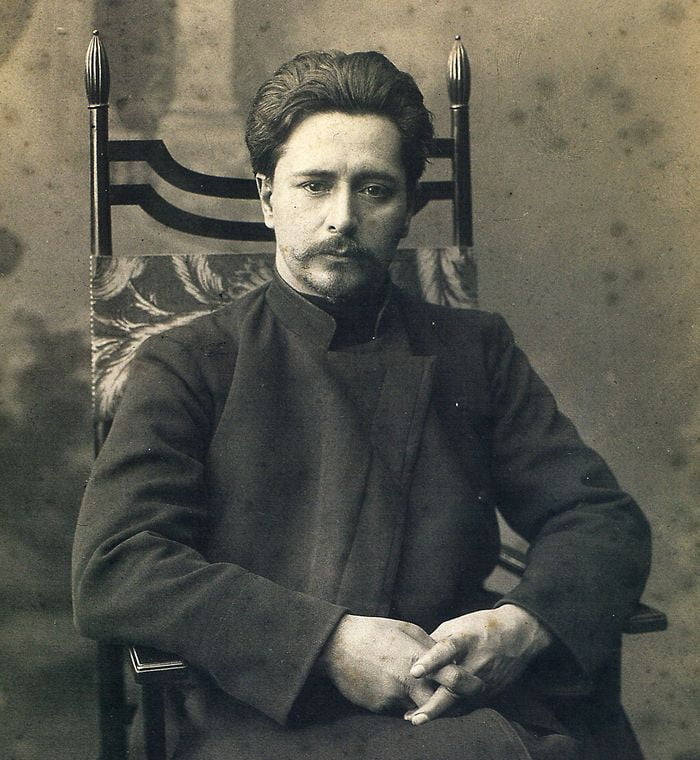Leonid Andreyev (1871-1919)
Born in 1871 at Orel, Andreyev struggled for many years to earn a livelihood as a lawyer. He began writing in 1900, and was helped and encouraged by Gorky. The note of tragedy and fatalism that characterizes his plays and novels is present also in his numerous short stories, of which Silence is typical.
The present version, translated by John Cournos, was published by Brown Brothers, copyright, 1910. It is reprinted by permission of the present owners, Frank-Maurice, Inc.
Silence
Pane moonlit night in May, while the nightingales sang, Father Ignatius` wife entered his chamber. Her countenance expressed Itlircring, and the little lamp she held in her hand trembled. Approaching Ixer husband, she touched his shoulder, and managed to say between her sobs:
“Father, let us go to Verochka.”
Without turning his head, Father Ignatius glanced severely at his wife over the rims of his spectacles, and looked long and intently, till (he waved her unoccupied hand and dropped on a low divan.
“That one toward the other be so pitiless!” she pronounced slowly, With emphasis on the final syllables, and her good plump face was distorted with a grimace of pain and exasperation, as if in this manner she winked to express what stern people they were her husband and daughter.
Father Ignatius smiled and arose. Closing his book, he removed his nectacles, placed them in the case and meditated. His long, black beard, in woven with silver threads, lay dignified on his breast, and it slowly heaved at every deep breath.
“Well, let us go!” said he.
Olga Stepanovna quickly arose and entreated in an appealing, timid voice:
“Only don`t revile her, father! You know the sort she is.”
Vera` chamber was in the attic, and the narrow, wooden stair bent and creaked under the heavy tread of Father Ignatius. Tall and ponderous, he lowered his head to avoid striking the floor of the upper story, and frowned disdainfully when the white jacket of his wife brushed his face. Well he knew that nothing would come of their talk with Vera.
“Why do you come?” asked Vera, raising a bared arm to her eyes. The other arm lay on top of a white summer blanket hardly’distinguish- able from the fabric, so white, translucent and cold was its aspect.
“Verochka!” began her mother, but sobbing, she grew silent.
“Vera!” said her father, making an effort to soften his dry and hard voice. “Vera, tell us, what troubles you?”
Vera was silent.
“Vera, do not, we, your mother and I, deserve your confidence? Do we not love you? And is there someone nearer to you than we? Tell us about your sorrow, and believe me you`ll feel better for it. And we too. Look at your aged mother, how much she suffers!”
“Verochka!”
Read More about Roberto` Tale part 1








